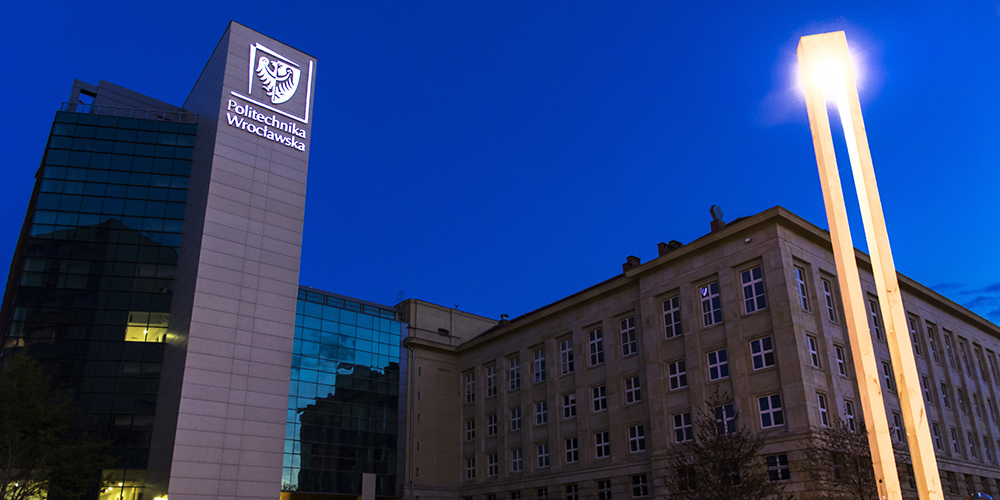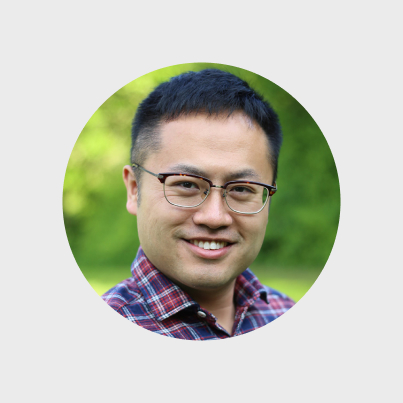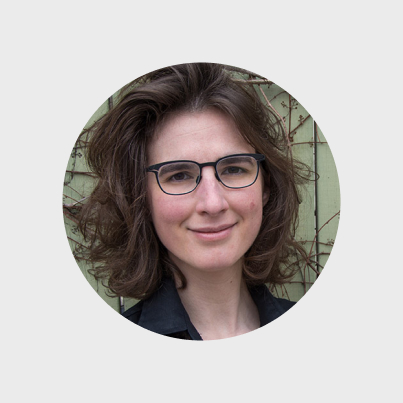Civil Engineering Graduate Degree Program
What makes this program different?
TMU’s graduate program in civil engineering nurtures a desire to solve daily infrastructural challenges like failing subway systems, congested bridges and unsustainable water systems. Our interdisciplinary curriculum encourages exploration, and helps students transform even their smallest ideas into revolutionary solutions.
Degree
PhD, MASc, MEng
Department
Civil Engineering
Fee range
Domestic: $9,626 - $11,195
Options
Full-time & Part-time, Multiple specializations, International Double Degree
Research and professional development options
Pursue a career in academic or industrial research through our MASc (Master of Applied Science) and PhD streams, or elevate your understanding of in-field civil engineering through our course-based MEng. Students can also choose to travel abroad with an international double degree!
Change the world alongside some of Canada’s leading experts
Collaborate with researchers across our interdisciplinary graduate community and learn from Canada Research Chairs, lab founders, and the heads of internationally-renowned associations.
Multidisciplinary program with 4+ specialization streams
Mentors, facilities and tools are only some of the ways this unique program nurtures students to make their own breakthroughs in their chosen area of specialization (environmental, geomatics, structural or transportation engineering).

Explore your journey
PhD
Ideal for engineers with a master’s degree who want to pursue a career in academia or a professional research career.
MASc
Ideal for engineers with an undergraduate degree who want to pursue a specific research area or idea.
MEng
Ideal for engineers with an undergraduate degree who want to elevate their credentials and increase their job market opportunities.

Courses offered in any of the focus areas explore a diversity of topics from nanobiotechnology or applied thermodynamics to membrane technology and engineering statistics.
Whether you’re in a research-intensive program or pursuing professional development, students benefit from full-scale equipment, the latest technology and faculty with the right combination of expertise to prepare students for exciting careers.
Visit the graduate calendar for full course descriptions and see which courses are offered this academic year.
Grade requirements: If a course mark is less than B- (2.67/4.33 or 70%) for both MEng and MASc, and less than B (3.00/4.33 or 73%) for PhD, you must repeat the course or alternate with another. Failure to maintain an acceptable academic standing could result in your being asked to withdraw from the program. Failure in more than one course will be considered grounds for dismissal.
Enrich your learning through research, labs & community
Environmental engineering covers urban facilities, infrastructure and environment, environmental informatics, and urban water and waste systems. Studies in environmental geomatics technologies are also offered, such as environmental remote sensing and geographic information systems (GIS)–based environmental decision support systems, monitoring, modelling and optimization of innovative stormwater management techniques.
Skills acquired in this field can also be applied to areas outside of engineering, such as land development and municipal infrastructure planning and management.
Research Areas:
- Anaerobic digestion
- Biogas production
- Bioaccumulations of toxins in aquatic space
- Eco-hydrology and eco-hydraulic engineering
- Green engineering
- Industrial oil/chemical spill management
- Innovative wastewater treatment technologies
- Modelling of watershed and landfill design
- Resources recovery from wastes
- Urban stormwater management practices
- Urban water and waste systems
Geomatics engineering research includes the areas of geospatial information and geographic information systems (GIS), photogrammetry and digital mapping, remote sensing and image processing, as well as satellite positioning and navigation. New, emerging directions include mobile mapping, geospatial cloud computing, knowledge discovery, light detection and ranging (LiDAR), and innovative geomatics applications.
The skills acquired in this stream can also be applied to areas outside of engineering such as urban planning, defense and natural resource management.
Research Areas:
- 3D/4D city modeling, building information management and visualization
- Big geospatial data analytics for smart cities
- Multi-sensor integration for mobile mapping and intelligent transportation systems
- Photogrammetry, 3D imaging, deformation monitoring and metrology
- Real-time and collaborative geographical information systems
- Remote sensing and image processing (e.g., automated object extraction and LiDAR data processing)
- Satellite positioning and navigation
- UAV sensor integration and real-time mapping
Research Laboratories and Facilities:
This field focuses on the various means for dealing with deteriorating built infrastructure, including earthquake engineering, construction materials and pavements, geotechnical engineering, and construction project management.
The skills acquired can also be applied to areas outside of engineering such as higher management, architectural and computer sciences, urban planning, law and policies, aerospace, and forensic sciences.
Research Areas:
- Aggregate reactions such as oxidation of sulphide minerals and alkali-aggregate reactions
- Applications of advanced composite materials in bridges and structures
- Behavior of structures and properties of concrete materials
- Bridge design, construction, repair and rehabilitation
- Deterioration and rehabilitation of infrastructures
- Earthquake-resistant steel buildings with self-centring systems and materials
- Evaluation and development of test methods for concrete durability in harsh environments
- High-strength/performance concrete and reactive powder concrete
- Offshore structures
- Performance-based design of concrete liquid containing structures, including liquid-structure-soil interaction effects
- Response of structures to wind actions using experimental wind tunnel testing and computational fluid dynamics
- Seismic analysis, design, and performance-based assessment of structures
- Strength of steel and composite concrete-steel members
- Structural health monitoring
- Sustainable development of self-consolidating concrete
- Tall building and long-span bridge aerodynamics
- Thunderstorm wind speeds suitable for structural design
- Use of industrial by-products in concrete and asphalt
Research Laboratories and Facilities:
This field involves research in road safety, highway design, urban transportation systems, planning, design and management of transportation systems with emphasis on our road and transit infrastructure. The skills acquired can also be applied to areas outside of engineering such as project planning and business management.
Research Areas:
- Disruptive/transformative transportation technologies and services
- Highway design
- Intelligent transportation systems
- Road safety and human factors
- Traffic operations/control/management
- Transportation planning
- Travel demand and behavior
- Transportation informatics
Research Laboratories and Facilities:
Note: This is an additional specialization, with limited number of courses and is not an official option on the OUAC application
Construction and infrastructure management focuses on the managerial aspects of issues arising during infrastructure planning, design, construction, operation and maintenance from a systematic viewpoint.
Students in this stream will conduct multidisciplinary research across other areas of the department. By integrating systems thinking, project management skills, modelling and simulation, data analytics, risk and uncertainties, optimization, and decision making theories, you will strive to provide holistic solutions for effective delivery and management of infrastructure systems. The project management skills you acquire can also be applied to all engineering areas and beyond.
Research Areas:
- Competitive bidding
- Construction innovation
- Infrastructure asset management
- Public-private partnerships
- Risk, reliability and resilience
- System optimization
Note: This is an additional specialization, with a limited number of courses and is not an official option on the OUAC application.
Geotechnical engineering focuses on the engineering behaviour of earth materials. This discipline applies the knowledge of soil mechanics and rock mechanics to the design of foundations, tunnels, retaining walls, earth dams, etc. The skills acquired in this stream can also be applied to areas outside of engineering such as real estate development and facilities management.
Research Areas:
- Reliability design of geo-structures
- Ground improvement techniques
- Geotechnical characteristics of glacial deposits
- Design and risk mitigations of urban tunneling
Research Laboratories and Facilities:
TMU is home to over 130 state-of-the art engineering and architecture-focused labs and facilities. Whether you’re interested in wind tunnels, virtual reality environments, or disruptive transportation technologies, our 16 dedicated civil engineering labs make revolutionary research possible.
For example, the ELISA laboratory is the first academic facility that focuses on the analysis of persistent toxic substances in the environment. The Road Safety Research lab features a basic driving simulator, vehicle dynamics modules, eye-tracking equipment, and more all integrated into a real car.

Whether you’re looking to join a student group, advocate for your peers in student government, challenge yourself and others at our graduate symposium, or just looking for support, we encourage you to make the best of your experience at TMU.

Through partnerships with universities in Germany and Poland, grad students in electrical and computer engineering can gain international experience, learn a new language and earn two master’s degrees simultaneously through this double degree program.
What can you do with this degree?
Career possibilities
Civil engineering graduates find there are endless opportunities where the skills gained from their degree are responding to urgent and emerging infrastructural challenges. Our experts become change-agents and conscious leaders holding a variety of roles in construction, consulting, transport infrastructure, utilities, education and even law. Many work at large firms or across all levels of government.
Career possibilities
- CIMA+
- Ontario Ministry of Transportation
- Keller Foundations Ltd
- WSP
- Arup
- City of Toronto
- Environment Canada
- Ellis Don
- PCL
- SNC Lavalin
- Metrolinx
- Infrastructure Ontario
- LafargeHolcim
- King Package Materials
- AECON
- HATCH Group
- Stantec
- Dessau
- Genivar
- Golder
- Morrison Hershfield
- WorleyParsons, and many more…

Wei Huang, Professor
Tongji University
“I worked closely with my professors and my fellow students during my PhD, gaining critical thinking skills and state-of-the-art training in geoinformatics. Both benefit me in my current job, where I have to deal with massive transportation data to tackle complex urban issues."
Civil Engineering (PhD) ‘16

Maria Espinosa Granados
Senior Traffic Analyst at City of Richmond Hill
“The Toronto Metropolitan University curriculum and community provided me with more than just the skillset required to excel in my industry. It gave me the social integrity needed to stand out as an emerging professional.”
Civil Engineering ‘15
Civil Engineering (MASc) ‘17

Amanda L. Ciosek
Industrial Water Engineer, Hatch
"What makes Toronto Metropolitan University so special is its value in people; from the growth of its students, to the strength of its staff and faculty, and how we are all integrated with the evolution of the local community, which extends to a vast, international scale. As a graduate, the value of people is what drives me, and how I can take what I’ve learned and make our society a better place.”
Civil Engineering '10 (BEng), '12 (MASc), '18 (PhD)
Civil engineering scholarships and awards
There are a number of scholarships and awards available specifically for civil engineering graduate students including:
Cansel Business Award ($2,500)
This award is reserved for graduate students in the field of geomatics. To be eligible, you must develop a paper—using products and services provided by Cansel—that challenges conventional thought and offers new insights.
Cansel Innovation Award ($2,500)
To be eligible for this award, you must be registered as a full-time graduate student at TMU with a clear academic standing and enrolled in the geomatics field of the civil engineering program. You must also have completed a minimum of four graduate courses in your current degree program at TMU, and have a minimum CGPA of 3.67 (A-).
Genesis Land Surveying Award for Geomatics Innovation ($2,500)
This annual award is reserved for civil engineering graduate students in the field of geomatics. To be eligible, you must demonstrate academic excellence and exceptional professional and leadership skills.
Graduate Assistant Awards of Excellence
The purpose of the Graduate Assistant Awards of Excellence is to recognize, promote, and reward the contributions that graduate assistants make to enhance the quality of the undergraduate student learning experiences in the Department of Civil Engineering at Toronto Metropolitan University.
Eligibility
Nominees must have worked as a graduate teaching assistant (GA) of Civil Engineering undergraduate courses over the past academic year. A person can receive this award only once throughout their time at Toronto Metropolitan University.
Nomination Process
Nominations may be made by:
- Undergraduate students of the nominating GAs,
- Other GAs working in the same courses,
- Instructors who supervise the nominating GAs, or
- GAs themselves
The nomination package must include the following documents in one PDF file:
- Nomination letter: the nomination letter includes a statement of maximum 1000 words highlighting the main contribution of the nominee and why she/he deserves this award.
- One letter of support: the letters of support (maximum two pages) should provide specific examples of why the nominee should be considered for the GA Award of Excellence. The letter of support can be submitted by (a) course instructor, or (b) student(s), or (c) both the instructor and the student(s), other than the nominee.
Award Criteria
The nomination package should demonstrate how the nominee has embodied teaching excellence through:
- Applying effective teaching strategies and diverse teaching methods (40%)
- Providing effective feedback to improve the quality of undergraduate education (20%)
- Incorporating equity, diversity and inclusion in teaching (20%)
- Ongoing commitments to teaching through professional development (such as Graduate Teaching Development Program, attendance of TA/GA workshops and teaching and learning seminar and conference) (20%).
Selection Process
Two awards are selected for every academic year: one award for Fall Semester and one award for Winter Semester. Award winners will receive a cash prize ($300) and a certificate.
The selection of winners will be done by the Scholarships and Awards Committee of the Civil Engineering Graduate Program.
Nomination Deadline
A call for nomination will be sent out to all graduate students and instructors in early fall, with a specific deadline. The nomination package must be submitted to Office Manager Ms. Helen Rusan (hrusan@torontomu.ca) by email.
Eligibility
Nominees must have worked as a graduate teaching assistant (GA) of Civil Engineering undergraduate courses over the past academic year. A person can receive this award only once throughout their time at Toronto Metropolitan University.
Nomination Process
Nominations may be made by:
- Undergraduate students of the nominating GAs,
- Other GAs working in the same courses,
- Instructors who supervise the nominating GAs, or
- GAs themselves
The nomination package must include the following documents in one PDF file:
- Nomination letter: the nomination letter includes a statement of maximum 1000 words highlighting the main contribution of the nominee and why she/he deserves this award.
- One letter of support: the letters of support (maximum two pages) should provide specific examples of why the nominee should be considered for the GA Award of Excellence. The letter of support can be submitted by (a) course instructor, or (b) student(s), or (c) both the instructor and the student(s), other than the nominee.
Award Criteria
The nomination package should demonstrate how the nominee has embodied teaching excellence through:
- Applying effective teaching strategies and diverse teaching methods (40%)
- Providing effective feedback to improve the quality of undergraduate education (20%)
- Incorporating equity, diversity and inclusion in teaching (20%)
- Ongoing commitments to teaching through professional development (such as Graduate Teaching Development Program, attendance of TA/GA workshops and teaching and learning seminar and conference) (20%).
Selection Process
Two awards are selected for every academic year: one award for Fall Semester and one award for Winter Semester. Award winners will receive a cash prize ($300) and a certificate.
The selection of winners will be done by the Scholarships and Awards Committee of the Civil Engineering Graduate Program.
Nomination Deadline
A call for nomination will be sent out to all graduate students and instructors in early fall, with a specific deadline. The nomination package must be submitted to Office Manager Ms. Helen Rusan (hrusan@torontomu.ca) by email.

